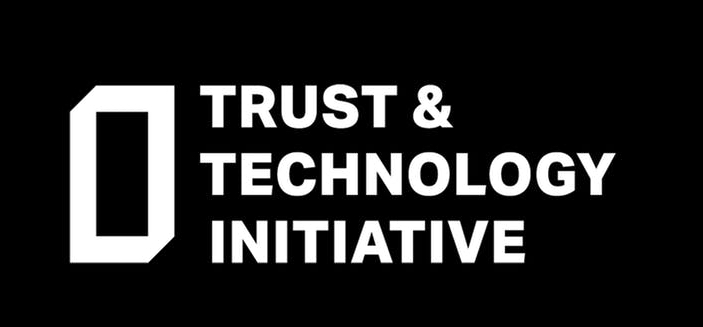Institutions, technology and trust
Prof John Naughton, CRASSH
A central question for researchers in this field is whether traditional concepts of ‘trust’ — which are rooted in ideas about the trustworthiness of persons — can be applied to institutions (government, regulators, legislatures, newspapers), or to artefacts (i.e. technologies).[1]The evolution of an increasingly networked world is throwing up interesting case studies which suggest that both issues of trustworthiness are coming to be inextricably linked.
Consider the case of Uber and Airbnb. These are online platforms which (respectively) put providers of mobility and accommodation services in touch with buyers who wish to avail of them. But what exactly are Uber and Airbnb selling? The conventional answer is: rides and rooms. But, as Henderson and Churi argue,[2] this is too simplistic. Uber doesn’t own any cars or employ any drivers[3] and so is not really in the taxi business. “Instead, it sells a passenger the information she needs to trust a stranger to give her a ride. Specifically, it provides information on all nearby people willing to offer a ride and all nearby people seeking a ride, then efficiently matches passengers and drivers”. Trustworthiness is supposedly delivered by a five-star rating system on both passengers and drivers. On this analysis, the competitors of Uber are not traditional taxi firms but the municipal regulators who license taxi operators and thereby ensure that these operators are fit and proper persons to carry passengers and are therefore trustworthy. Much the same analysis can be applied to Airbnb.
Another case study is provided by Facebook. Over the last two years the company has been beset by a series of scandals[4] involving data breaches, exploitation of its various services by political extremists and political actors (domestic and foreign). Controversies about these scandals — especially the revelations about Cambridge Analytica’s exploitation of user data — initially appeared to have dented users’ trust in Facebook, but it’s not clear[5] whether it led many to stop using it.[6]
But when Facebook launched its Libra cryptocurrency project in July 2019, the proposed design[7] suggested that the company understood that it suffered from a trust deficit. The currency would be ‘stable’ — backed by a basket of currencies and security instruments managed by an ‘association’ of up to 100 other organisations of which Facebook would be only one. Libra was a cryptocurrency because that would ensure that Facebook was not in control of the validation of transactions.[8] And although the company would create its own Calibra wallet, other organisations would be free to create competing wallets. So — the argument ran — the currency project would not be dominated by Facebook.
These arguments cut no ice with the Congressional Committee which grilled[9] the Facebook executive leading the Libra project. The general tone of the Hearing was, as the ranking Democrat on the Committee put it, that it was ‘delusional’ for Facebook to think that people would trust it with “their hard-earned money”. So Facebook’s strategy for addressing its trust deficit by both technical (blockchain) and institutional (Libra Association) means appeared to have stumbled at the first regulatory hurdle. It will be interesting to see how this pans out.
[1] Nickel, Philip J, Franssen, Maarten, and Kroes, Peter. 2010. Can We Make Sense of the Notion of Trustworthy Technology?. Knowledge, Technology, and Policy 23(3-4): 429-444. Available at https://link.springer.com/article/10.1007/s12130-010-9124-6 [accessed 13/09/2019].
[2] Henderson, Todd M and Churi, Salem. 2019. The Trust Revolution. Cambridge University Press.
[3] Though the question of whether drivers should be regarded as employees is contested in some jurisdictions.
[4] Mahdawi, Arwa. Is 2019 the year you should finally quit Facebook?. The Guardian. Available at https://www.theguardian.com/commentisfree/2018/dec/21/quit-facebook-priv... [accessed 13/09/2019].
[5] Sterling, Greg. After a week of crisis and mea culpas, assessing the threats and exposure. Marketing Land. Available at https://marketingland.com/after-a-week-of-crisis-and-mea-culpas-from-fac... [accessed 13/09/2019].
[6] A Pew survey conducted in 2019 found that 69% of Americans continue to use the service, three quarters of whom visit the site at least once a day. On the other hand, 54% of adult users have adjusted their privacy services following the Cambridge Analytica revelations. See Gramlich, John. 2019. 10 facts about Americans and Facebook. Pew Research Centre. Available at https://www.pewresearch.org/fact-tank/2019/05/16/facts-about-americans-a... [accessed 13/09/2019].
[7] Libra. 2019. The Libra Blockchain. Available at https://libra.org/en-US/white-paper/#the-libra-blockchain [accessed 13/09/2019].
[8] In fact, Libra — unlike, say, Bitcoin — is based on a “permissioned” blockchain: transactions are validated not by mining but by designated ‘validators’. Whereas ‘pure’ blockchains avoid the need for a central validating authority by essentially de-centralising the task (thereby solving the ‘trust’ problem), Libra deals with the trust issue by nominating a set of up to 100 validators, all of whom are members of the Libra Association. See Halpern, Sue. 2019. Facebook’s audacious pitch for a global cryptocurrency. New Yorker. Available at https://www.newyorker.com/tech/annals-of-technology/facebooks-audacious-... [accessed 13/09/2019].
[9] CNBC. 2019. Facebook’s David Marcus testifies before Senate on Libra cryptocurrency [video]. Available at https://www.youtube.com/watch?v=xUQpmEjgFAU [accessed 13/09/2019].

